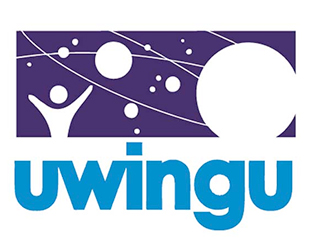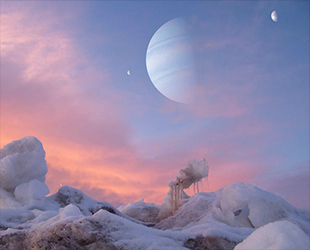November 12, 2012 — A new company looking to raise funds for space exploration, research, and education has introduced its first product: a website to collect and rank names for planets found outside our solar system.
The "baby book of planet names" is the premiere project of Uwingu (pronounced "oo-wing-oo"), a space-themed for- profit startup founded earlier this year by space scientists and astronomers. The naming challenge is based on the estimation that there are 160 billion planets inhabiting our galaxy, the Milky Way, all without proper monikers.
"This is a whole new way for the people of Earth, of every age, of every nation, of every walk of life to creatively connect to space!" said Uwingu cofounder and CEO Alan Stern, who from 2007 to 2008 served as NASA associate administrator for science and is the principal investigator for the New Horizons mission to Pluto. "You can nominate planet names for your favorite town, state or country, your favorite sports team, music artist, or hero, your favorite author or book, your school, your company, for your loved ones and friends, or even for yourself."
"And tell your friends about the names you nominate, so they can help vote them to the top! It's fun, it's social, and it's for a great cause," Stern added.

Uwingu plans a series of public-engagement projects and to use the proceeds to fund space exploration, research, and education efforts around the world. |
Uwingu (which means "sky" in Swahili) plans to use the proceeds from this project and future ones like it to create a grant to fund space researchers and space educators.
Planet name nominations are 99 cents each and there is no limit on the number of nominations a person or entity can sponsor. Uwingu is also holding a contest to identify the 1,000 most popular planet names in their database, which will be shared with planet hunting astronomers for consideration. Votes also cost 99 cents each.
"The many, many planets discovered across the galaxy in the past 20 years are a tribute to our natural human desire to explore beyond the horizon," Dr. Geoff Marcy of the University of California at Berkeley, Uwingu adviser and leading planet hunter, said. "Now people all over the world can participate in these discoveries in a new way, giving identities and even personality to billions of planets in our galaxy for the first time."
To date, about 800 extrasolar planets have been found by astronomers like Marcy, using a number of techniques, including measuring shifting spectrums from the planets' parent stars and "microlensing" — studying the relative brightness between stars with planets and stars without. These newly-found distant planets are often referred to by alpha-numeric designations like "HD 85512 b" or "Gliese 667Cc."
Uwingu does not have the authority to name (or rename) exoplanets, nor are they assigning the nominated names to specific bodies. The International Astronomical Union (IAU) is currently the only organization that gives names to celestial entities, and it has neither endorsed Uwingu's project or suggested that it plans to change its process.
"The IAU sees no need and has no plan to assign names to these [planets around other stars] at the present stage of our knowledge," the union states on its website.

"Extrasolar Planet 10" original artwork by Dan Durda (Uwingu) |
But that does not mean Uwingu's nomination site does not have merit — especially for the next generation of planet hunters.
"At Uwingu, we think that it's important that kids learn, as well as play!" said Uwingu's education officer, Dr. Emily CoBabe. "Not only can kids have fun suggesting names for planets, but we've got a suite of great activities that focus on extrasolar planets."
At press time, about 200 votes had been cast for more the 300 nominated planet names. The most popular with just over 50 votes is "Heinlein," honoring science fiction author Robert Heinlein whose celebrated works include "Stranger in a Strange Land" and "The Moon is a Harsh Mistress."
